
Pai: Thailand's Hidden Gem in the Mountains
Nestled in the verdant mountains of Northern Thailand, Pai is a tranquil haven for travelers seeking both adventure and relaxation. This small town exudes a laid-back vibe that is infectious, making it an ideal destination for those looking to escape the hustle and bustle of city life. Surrounded by lush greenery, scenic waterfalls, and hot springs, Pai offers visitors a unique opportunity to connect with nature. Pai is renowned for its vibrant night market, where you can sample delicious local cuisine and shop for handmade crafts. The town's charming streets are lined with cozy cafes, boutique shops, and art galleries, offering a perfect blend of culture and comfort. For the more adventurous, nearby attractions such as the Pai Canyon and the Tham Lod Cave provide thrilling experiences and breathtaking views. One of the highlights of Pai is its welcoming and diverse community. From backpackers to artists, Pai attracts a wide variety of visitors, creating a melting pot of cultures and ideas. This sense of community is best experienced at the town's many live music venues and yoga retreats, where you can meet fellow travelers and locals alike. Whether you're exploring its natural beauty or immersing yourself in its vibrant culture, Pai promises an unforgettable experience.
Local tips in Pai
- Visit the night market for a taste of authentic Thai street food and unique handmade crafts.
- Rent a scooter to explore the scenic countryside and hidden gems around Pai.
- Take a dip in the Pai Hot Springs for a relaxing natural spa experience.
- Catch the sunset at Pai Canyon for stunning panoramic views.
- Join a yoga or meditation retreat to unwind and connect with like-minded travelers.
Pai: Thailand's Hidden Gem in the Mountains
Nestled in the verdant mountains of Northern Thailand, Pai is a tranquil haven for travelers seeking both adventure and relaxation. This small town exudes a laid-back vibe that is infectious, making it an ideal destination for those looking to escape the hustle and bustle of city life. Surrounded by lush greenery, scenic waterfalls, and hot springs, Pai offers visitors a unique opportunity to connect with nature. Pai is renowned for its vibrant night market, where you can sample delicious local cuisine and shop for handmade crafts. The town's charming streets are lined with cozy cafes, boutique shops, and art galleries, offering a perfect blend of culture and comfort. For the more adventurous, nearby attractions such as the Pai Canyon and the Tham Lod Cave provide thrilling experiences and breathtaking views. One of the highlights of Pai is its welcoming and diverse community. From backpackers to artists, Pai attracts a wide variety of visitors, creating a melting pot of cultures and ideas. This sense of community is best experienced at the town's many live music venues and yoga retreats, where you can meet fellow travelers and locals alike. Whether you're exploring its natural beauty or immersing yourself in its vibrant culture, Pai promises an unforgettable experience.
When is the best time to go to Pai?
Iconic landmarks you can’t miss
Pai Canyon
Explore the breathtaking Pai Canyon, a natural gem in Thailand with stunning views, exhilarating hikes, and unique geological formations.
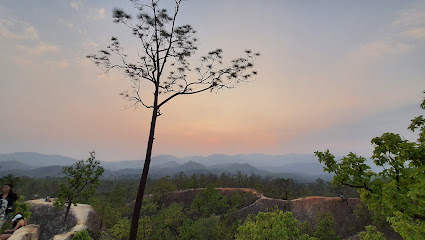
Yun Lai Viewpoint
Experience the breathtaking sunrises and stunning landscapes at Yun Lai Viewpoint, a must-visit tourist attraction in Pai, Thailand.
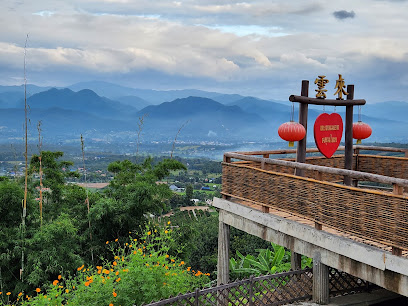
Santichon Village
Explore the enchanting Santichon Village in Pai District, where Yunnanese culture meets stunning natural beauty, perfect for an unforgettable travel experience.
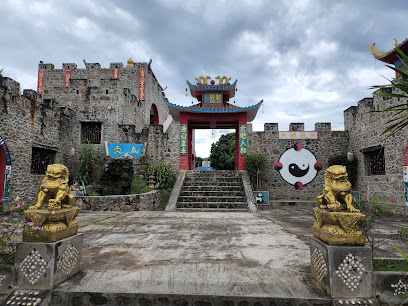
Kho Ku So Bamboo Bridge
Discover the serene beauty of Kho Ku So Bamboo Bridge, a breathtaking tourist attraction in Pai District, Mae Hong Son, perfect for nature lovers and photographers.
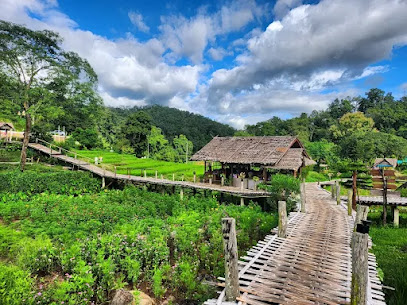
Tha Pai Memorial Bridge
Explore Tha Pai Memorial Bridge, a historic landmark in Pai, Thailand, blending rich history with stunning natural beauty.
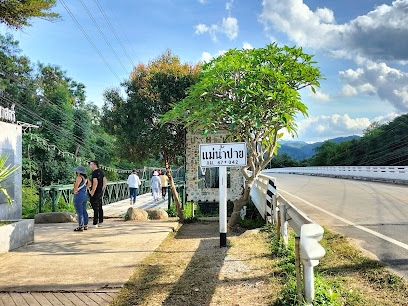
Tha Pai Hot Spring
Discover the rejuvenating tranquility of Tha Pai Hot Springs, where natural thermal waters meet stunning landscapes in Mae Hong Son, Thailand.
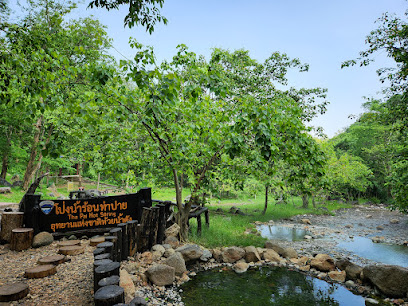
Mo Pang Waterfall
Explore the enchanting Mo Pang Waterfall in Pai, Thailand, where nature's beauty meets adventure amidst lush greenery and serene landscapes.
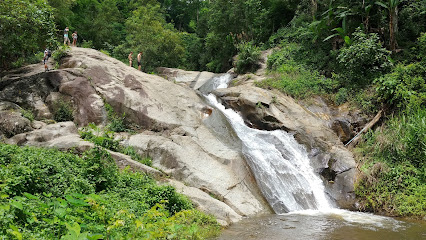
Charlie&lek
Discover healthy, delicious meals in the heart of Pai at Charlie & Lek, where local flavors meet nutritious dining in a serene atmosphere.
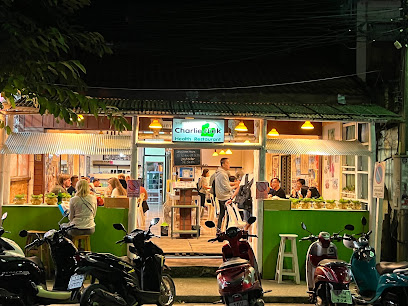
Chedi Phra That Mae Yen
Discover the serene beauty and spiritual significance of Chedi Phra That Mae Yen, a must-visit Buddhist temple in Pai, Thailand.
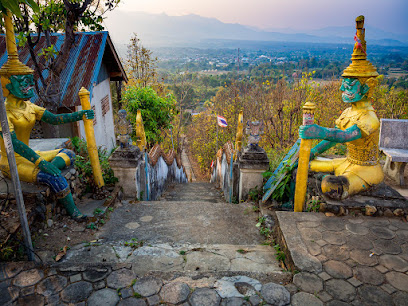
Pai bamboo mini golf
Experience the charm of Pai Bamboo Mini Golf, where fun meets stunning natural beauty in the heart of Northern Thailand.
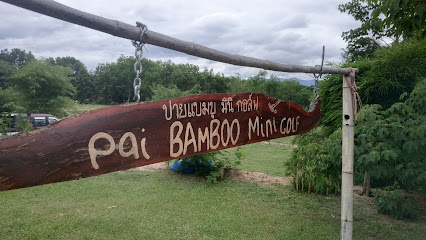
Pam Bok Waterfall
Explore the serene beauty of Pam Bok Waterfall, a hidden gem in Pai, Thailand, perfect for relaxation and nature adventures.
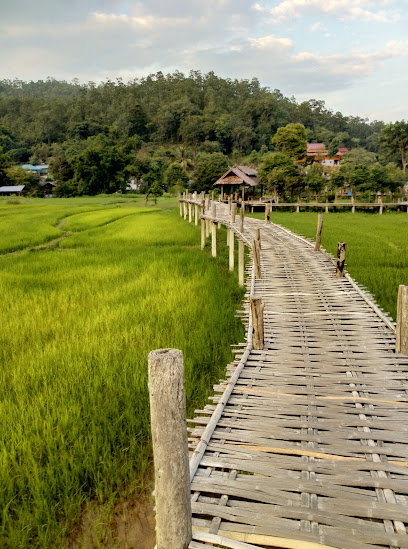
Thom's Pai Elephant Camp
Discover the beauty of elephants at Thom's Pai Elephant Camp, where responsible tourism meets unforgettable experiences in the heart of Pai District, Thailand.
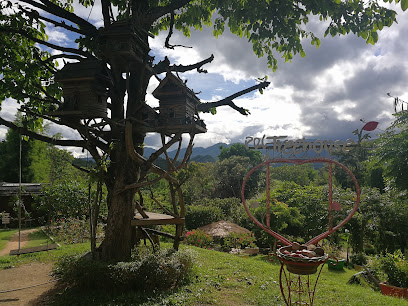
Khaotha Coffee / Roastered Pai
Discover the enchanting flavors of Khaotha Coffee in Pai, where every sip of expertly roasted coffee offers a taste of local culture and stunning views.
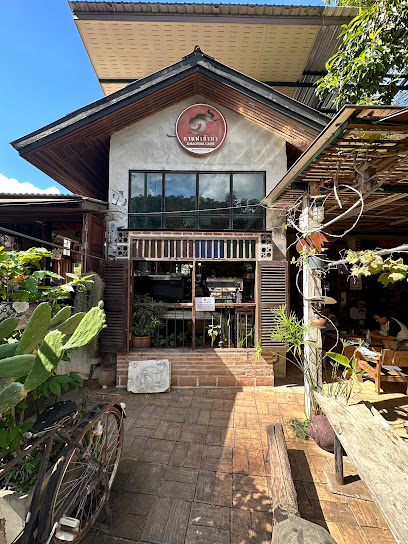
Jazz House
Discover the enchanting Jazz House in Pai, a lively bar and live music venue offering unforgettable nights filled with rhythm and relaxation.
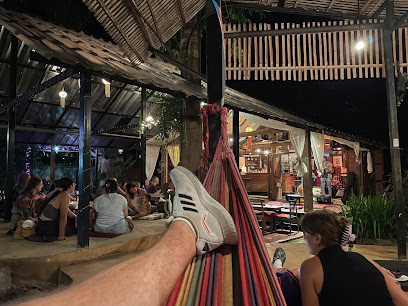
Sunset Bar
Experience breathtaking sunsets and a laid-back atmosphere at Sunset Bar in Pai, the perfect retreat for tourists seeking tranquility and great drinks.
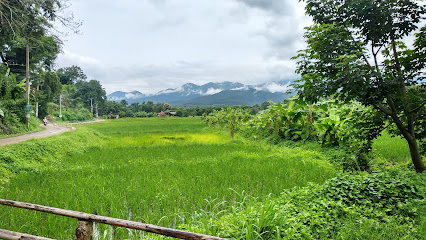
Unmissable attractions to see
Santichon Village
Explore the cultural heart of Pai at Santichon Village, where Yunnanese traditions meet stunning natural beauty and authentic cuisine.
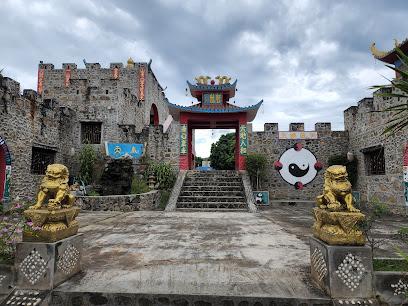
Nature Life @ PAI
Discover the vibrant culture and flavors of Pai at Nature Life @ PAI, a must-visit night market and tourist attraction in Thailand's beautiful Mae Hong Son.
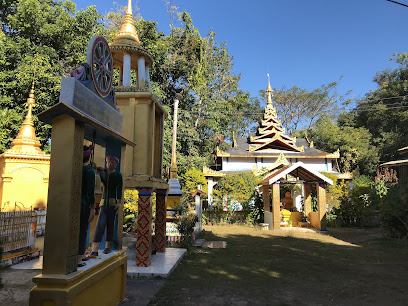
Kho Ku So Bamboo Bridge
Discover the serene beauty of Kho Ku So Bamboo Bridge in Mae Hong Son, a unique fusion of nature and craftsmanship perfect for photography and relaxation.
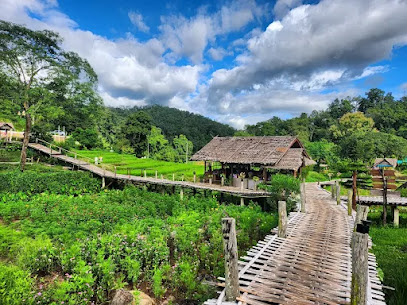
Nam Lod Cave
Explore the enchanting Nam Lod Cave, a stunning natural marvel in Mae Hong Son, featuring spectacular limestone formations and rich archaeological history.
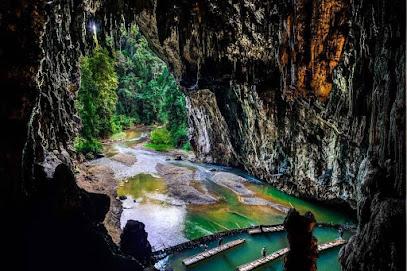
Tha Pai Hot Spring
Experience the serene beauty of Tha Pai Hot Spring, a natural oasis in the heart of Pai District, perfect for relaxation and rejuvenation.
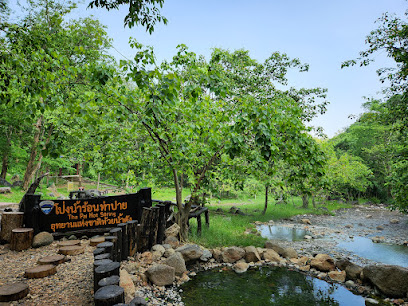
Mo Pang Waterfall
Experience the natural beauty and tranquility of Mo Pang Waterfall in Pai, Mae Hong Son – a hidden gem for nature lovers and adventure seekers.
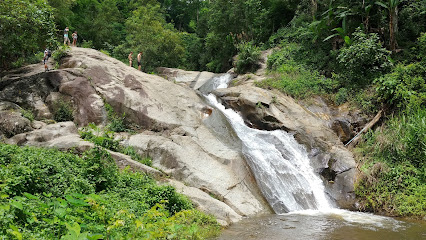
Wat Phra That Mae Yen
Experience the serene beauty and spiritual ambiance of Wat Phra That Mae Yen, a stunning Buddhist temple in Pai District, Thailand.
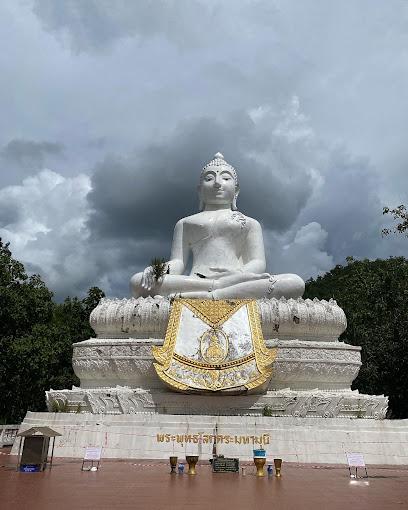
Love Strawberry Pai
Explore the beauty of Love Strawberry Pai, a stunning tourist attraction in Mae Hong Son where strawberry picking meets breathtaking landscapes.
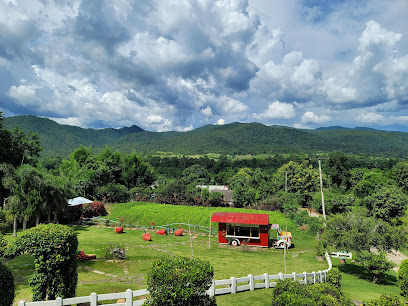
Wat Nam Hu
Discover the tranquility of Wat Nam Hu, a beautiful Buddhist temple in Pai, offering serene surroundings, stunning architecture, and rich cultural heritage.
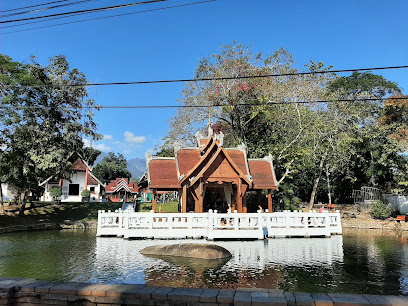
Chiang Dao Wildlife Sanctuary
Explore the breathtaking beauty and biodiversity of Chiang Dao Wildlife Sanctuary, a must-visit nature preserve in Northern Thailand.
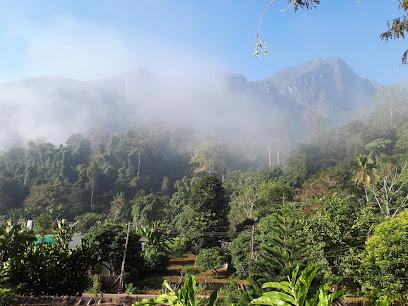
Mok Fa Waterfall
Experience the breathtaking beauty of Mok Fa Waterfall in Chiang Mai, Thailand's serene escape into nature's embrace.
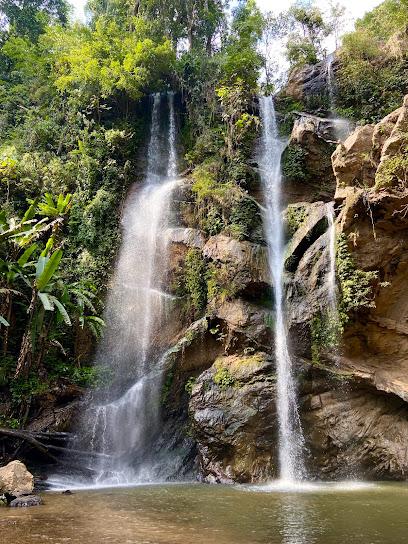
Huai Nam Dang National Park
Experience the breathtaking beauty and tranquility of Huai Nam Dang National Park, a natural wonder in Mae Hong Son, Thailand, perfect for nature lovers and adventurers.
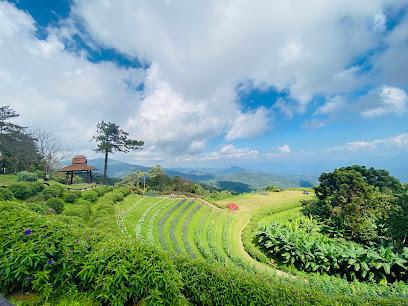
Huai Nam Dang National Park
Explore the stunning landscapes and rich biodiversity of Huai Nam Dang National Park, a natural gem in Thailand perfect for adventurous travelers.
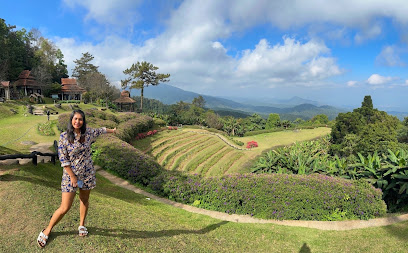
Pong Kwao Hot Springs
Discover the natural healing powers of Pong Kwao Hot Springs in Chiang Mai, where relaxation meets stunning mountain views.
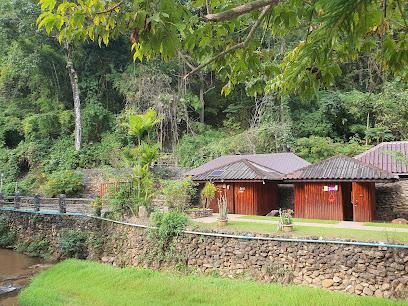
Thom's Pai Elephant Camp
Discover Thom's Pai Elephant Camp, where ethical tourism meets breathtaking natural beauty in the heart of northern Thailand.
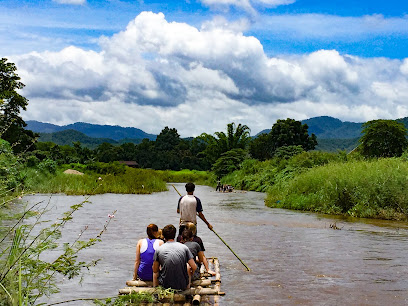
Essential places to dine
Om Garden Cafe
Discover Om Garden Cafe in Pai - where delicious food meets serene surroundings amidst Thailand's natural beauty.
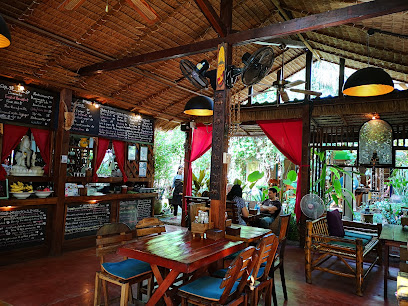
Charlie&lek
Experience healthy Thai cuisine at Charlie&lek in Pai - where fresh ingredients meet authentic flavors in a charming atmosphere.
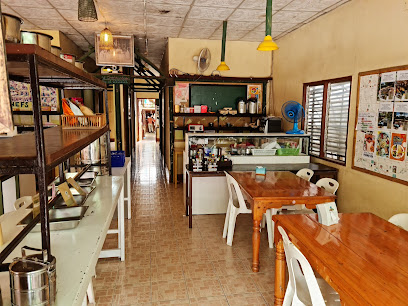
Nong Beer Restaurant
Discover authentic Thai flavors at Nong Beer Restaurant in Pai - where delicious meals meet vibrant culture.
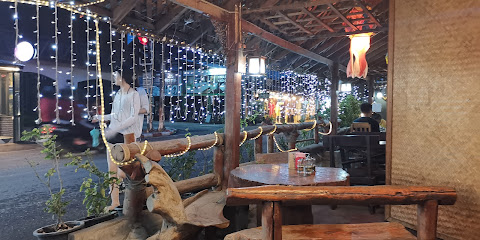
Earth Tone
Discover wholesome breakfasts at Earth Tone, where health meets flavor in the heart of Pai's serene landscape.
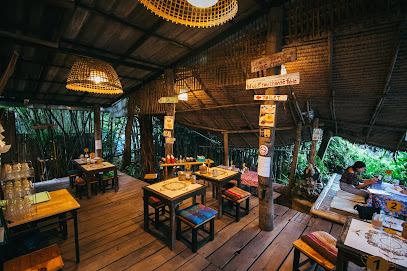
Two Sisters Restaurant
Experience authentic Thai flavors at Two Sisters Restaurant in Pai – where delicious food meets warm hospitality.
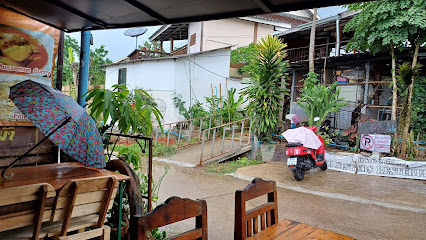
Maya Burger Queen
Discover the flavors of Thailand at Maya Burger Queen - where every bite of our gourmet burgers is a celebration of taste!
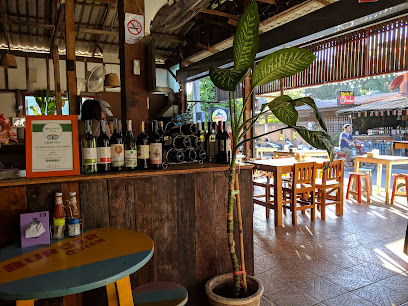
Ci Xin Jai
Discover the essence of vegan cuisine at Ci Xin Jai in Pai—where fresh ingredients meet innovative dishes in a serene setting.
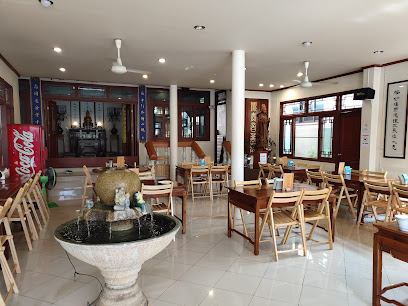
Céntrico Café and Mexican Restaurant Pai
Experience authentic Mexican cuisine at Céntrico Café and Mexican Restaurant in Pai – where vibrant flavors meet serene landscapes.
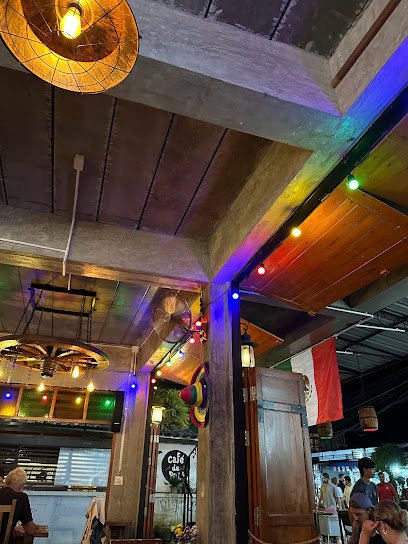
Bom Bowls
Discover the vibrant flavors of plant-based cuisine at Bom Bowls, Pai's top vegan café offering fresh and healthy delights.
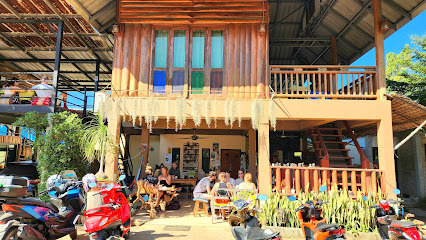
Ganita Cafe
Experience flavorful vegetarian and vegan dishes at Ganita Cafe in Pai - your go-to destination for healthy dining amidst stunning landscapes.
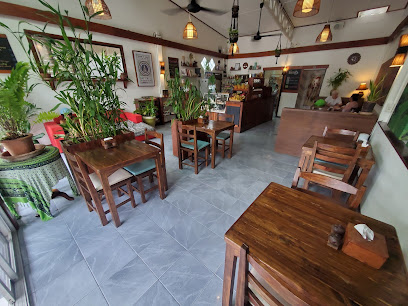
Baanpai restaurant
Experience authentic Thai flavors at Baanpai Restaurant in Pai - where culinary tradition meets breathtaking views.
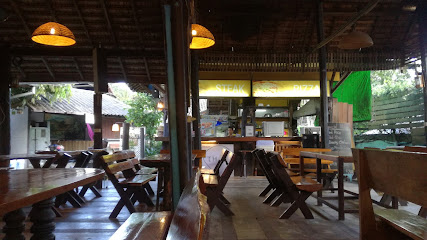
LEMON THYME CAFE’
Experience the vibrant flavors of Pai at Lemon Thyme Café, where delicious brunches and sweet treats await in a cozy setting.
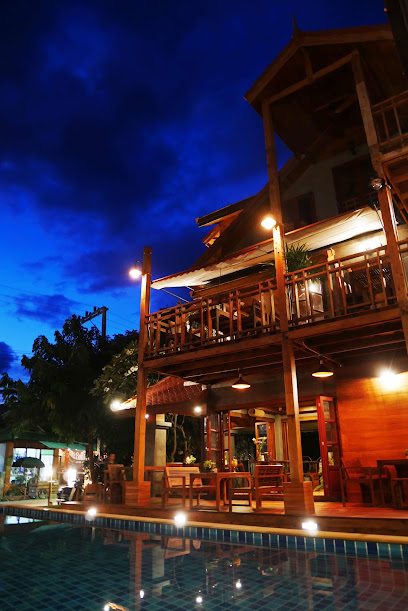
Cafecito
Discover the flavors of authentic Mexican cuisine at Cafecito in Pai, where every dish tells a story amidst breathtaking scenery.
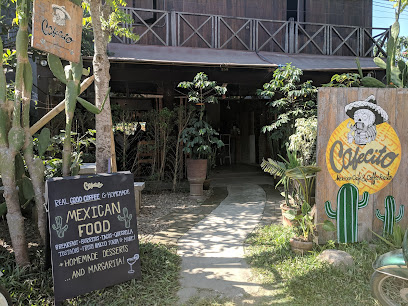
Pai Siam Bar & Bistro
Experience the vibrant flavors of Thailand at Pai Siam Bar & Bistro - where every meal tells a story.
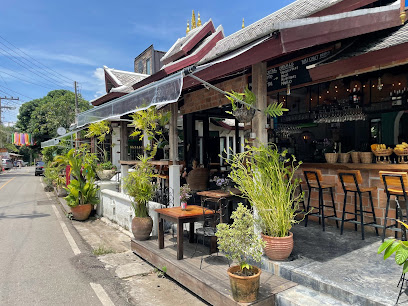
Blue Ox
Experience authentic Northern Thai cuisine at Blue Ox in Pai – where tradition meets innovation in every delicious dish.
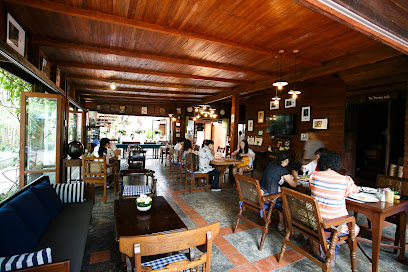
Markets, malls and hidden boutiques
Cannabis Cafe (Art for All)
Discover a unique fusion of cannabis culture and artistic expression at Cannabis Cafe (Art for All) in Pai, Thailand.
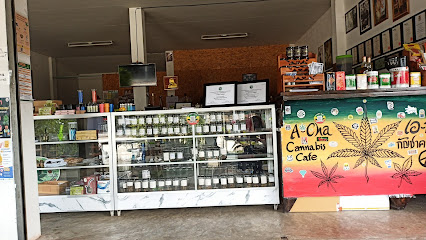
Green Family
Explore the vibrant cannabis culture at Green Family in Pai, Thailand—offering quality products in a welcoming atmosphere for all visitors.
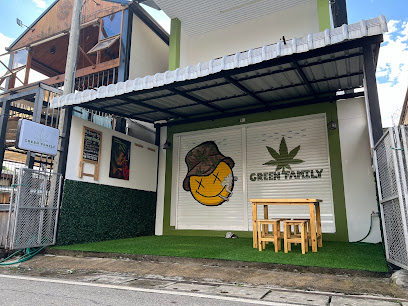
Siam Books
Discover a literary gem in Pai, Thailand at Siam Books, where spirituality and literature blend in a cozy, welcoming atmosphere.
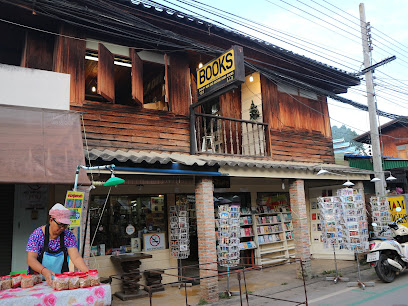
SWEED TIME (cannabis shop)
Explore the vibrant cannabis culture at SWEED TIME in Pai, where knowledgeable staff and high-quality products await.
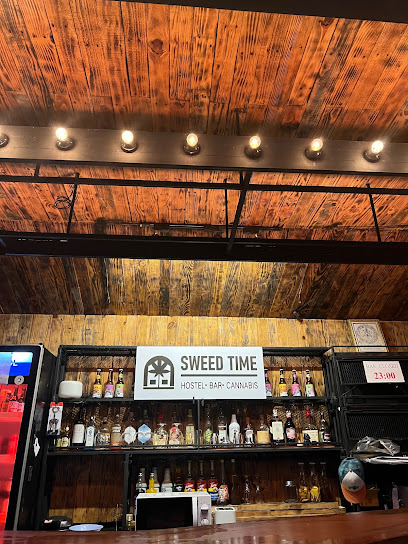
Organic Health Store PAI, SYMBIOSIS
Discover health and wellness at Organic Health Store PAI, offering organic produce and a cozy wine bar in the heart of Pai's vibrant market.
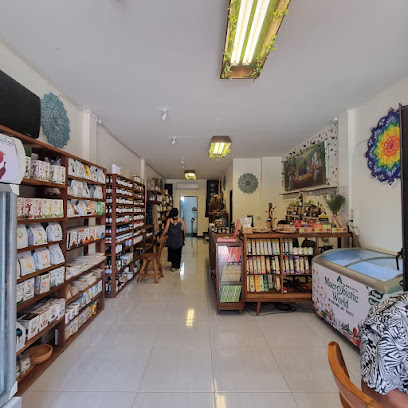
Chop420
Discover Chop420 in Pai, the go-to cannabis store for quality products and a unique cultural experience in Thailand.
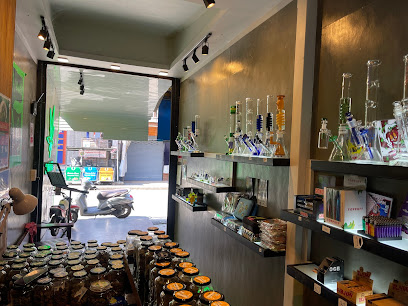
วัตสัน ปาย : WATSONS PAI : Click & Collect
Explore Watsons Pai for a diverse selection of health and beauty products, perfect for every tourist's needs in the enchanting town of Pai.
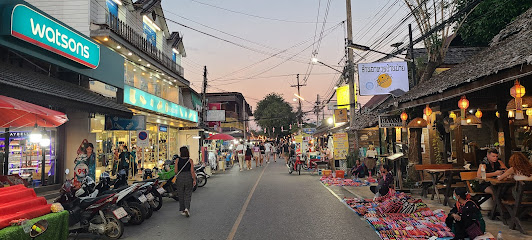
Return to Simple
Discover handcrafted leather goods at Return to Simple in Pai, where tradition meets creativity in every exquisite piece.
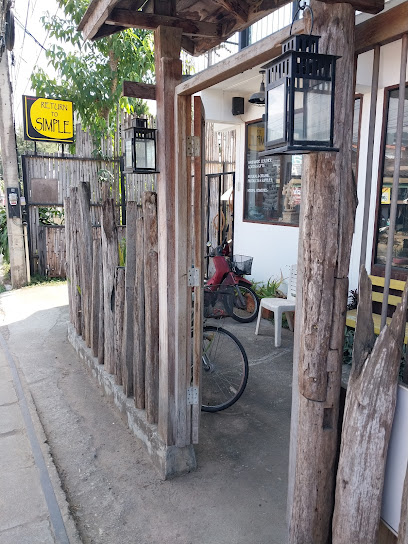
PAIHIGH
Discover PAIHIGH: A Unique Cannabis Store & Coffee Shop in the Heart of Pai, Thailand, Blending Local Culture with Relaxation.
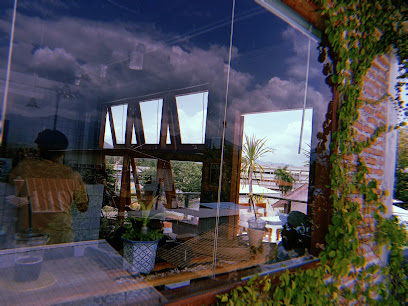
Pai Yes Can
Discover the unique cannabis culture at Pai Yes Can, a must-visit store in the enchanting town of Pai, Thailand.
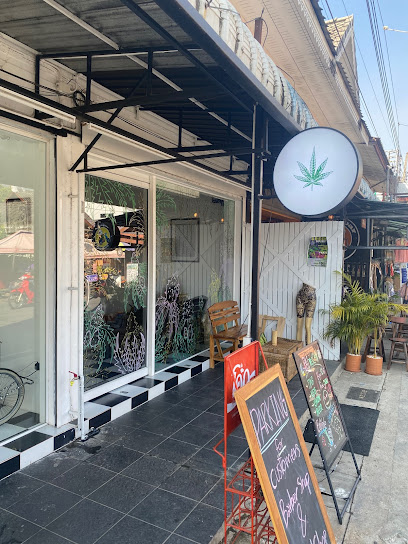
Cannabis Bar
Experience the laid-back charm of Pai's Cannabis Bar, where relaxation meets local culture in a vibrant atmosphere.
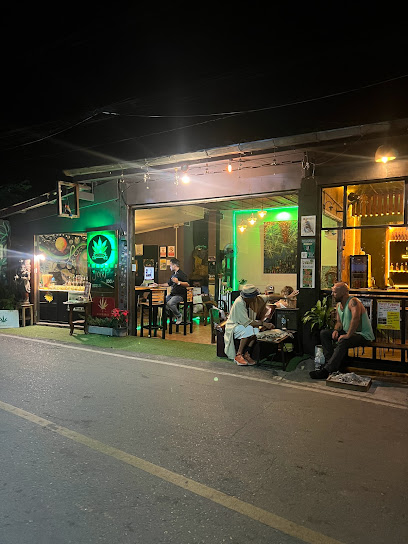
Pai Republic
Explore Pai Republic, a unique souvenir store in Pai, Thailand, where local craftsmanship meets vibrant culture and unforgettable keepsakes.
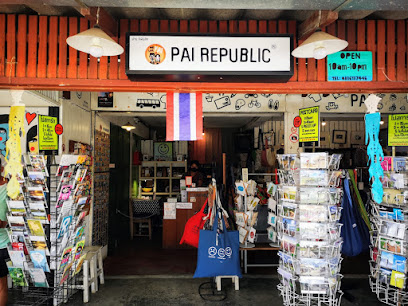
Pinta handcraft
Explore Pinta Handcraft in Pai for exquisite handmade leather goods, showcasing local craftsmanship and unique designs perfect for souvenirs.
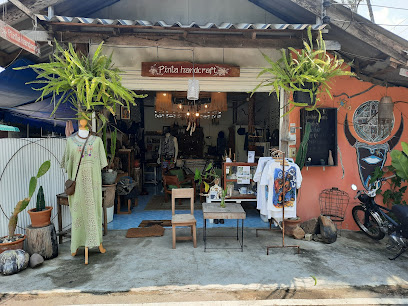
7-Eleven
Experience the convenience of 7-Eleven in Pai, where travelers find essential snacks, drinks, and local delights around the clock.
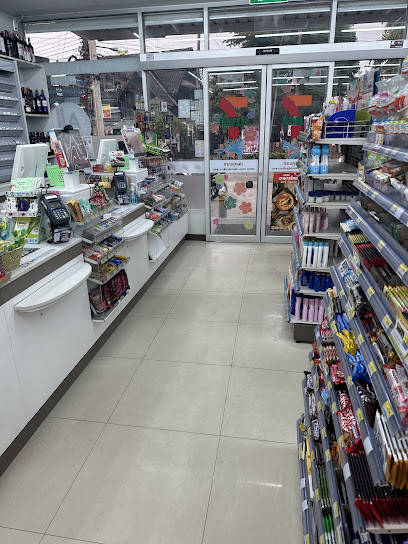
ร้านอัมพิกา. Aumpika Stationary Store
Discover creativity at Aumpika Stationery Store in Pai, a treasure trove of unique stationery and art supplies for every traveler.
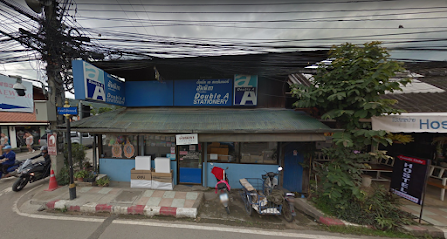
Essential bars & hidden hideouts
Jazz House
Experience the vibrant live music scene at Jazz House, the ultimate bar in Pai for unforgettable nights filled with rhythm and culture.
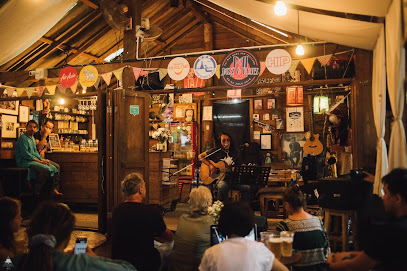
Sunset Bar
Discover the vibrant atmosphere at Sunset Bar in Pai District, where stunning sunset views and refreshing drinks create unforgettable memories.
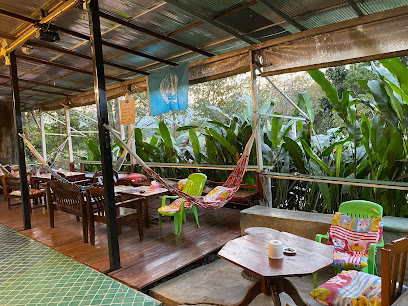
Pai Siam Bar & Bistro
Discover Pai Siam Bar & Bistro, a vibrant grill and bar experience in Pai, Thailand, offering a delightful fusion of local flavors and lively ambiance.
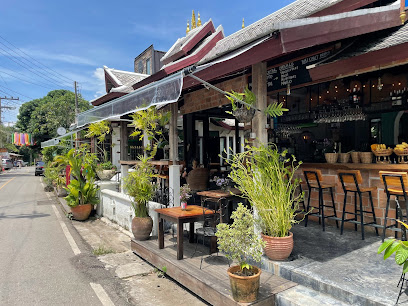
Don't Cry
Discover the vibrant nightlife at Don't Cry Bar in Pai, where great drinks and a welcoming atmosphere await every traveler.
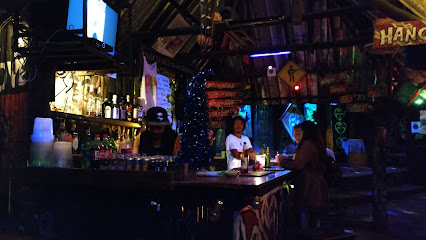
JIKKO BAR
Discover the vibrant ambiance of JIKKO BAR in Pai, where creative cocktails and stunning views create an unforgettable nightlife experience.
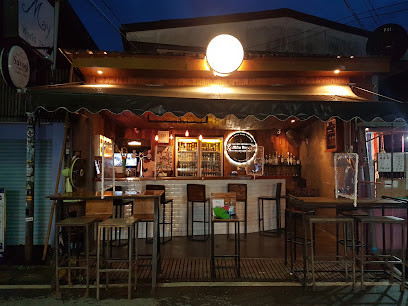
Boom Bar
Discover the lively atmosphere of Boom Bar in Pai, where unforgettable nights unfold with stunning views and delicious cocktails.
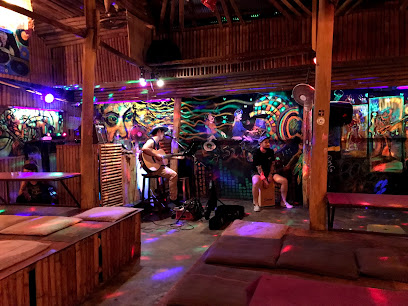
Yellow Sun
Experience the vibrant nightlife and local flavors at Yellow Sun Bar in Pai, where every sip brings you closer to the heart of Thailand.
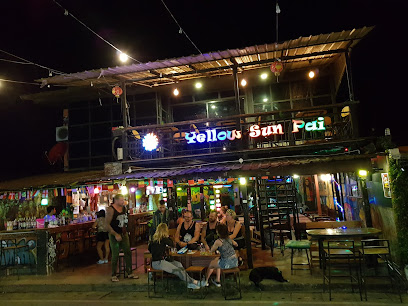
Spirit Bar & Jewelry
Experience the art of relaxation at Spirit Bar & Jewelry in Pai, where handcrafted cocktails meet exquisite local artistry.
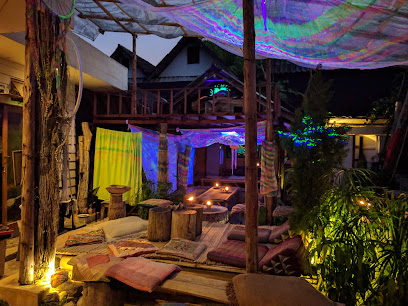
Almost Famous
Discover Almost Famous, the vibrant cocktail bar in Pai, known for its creative drinks and lively atmosphere, perfect for unforgettable nights.
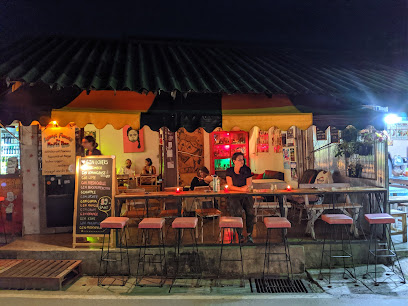
Ganesh
Discover Ganesh in Pai, a vibrant bar offering an array of drinks and live music, perfect for unwinding after a day of exploration.
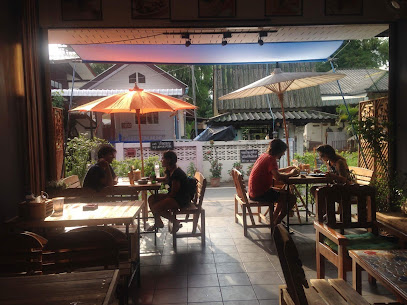
Paizy Bar Cocktail
Discover the vibrant nightlife and exquisite cocktails at Paizy Bar Cocktail, Pai's top destination for a memorable evening out.
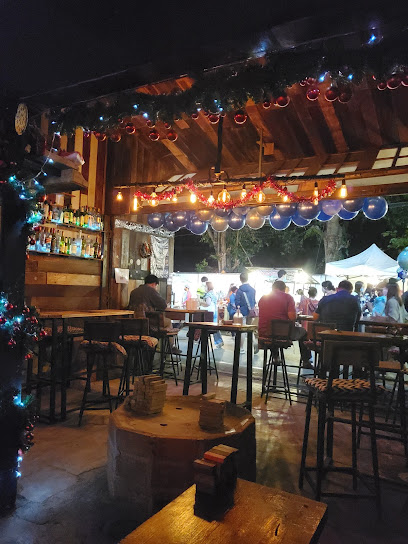
Paradise Bar
Discover the enchanting Paradise Bar in Pai, where fire shows and a unique hippy vibe create unforgettable nightlife experiences.
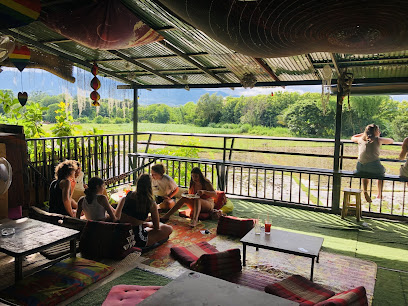
Pai Pub
Discover Pai Pub: A lively bar in Pai offering refreshing drinks and a vibrant atmosphere, perfect for tourists seeking local culture and entertainment.
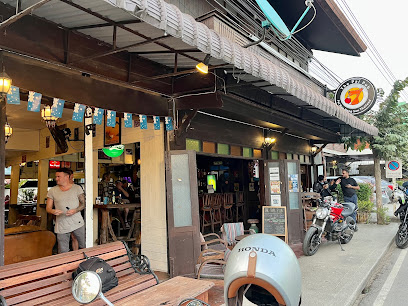
Why Not Bar
Discover the vibrant nightlife at Why Not Bar in Pai, where creative cocktails and live music create the ultimate social experience in Thailand.
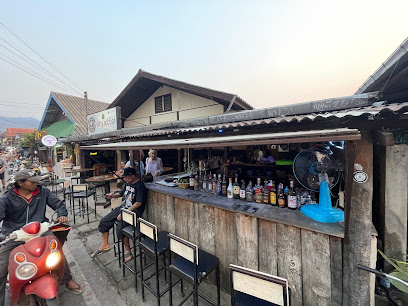
Travel experiences inspired by this city
Explore more travel diariesLocal Phrases
-
- Helloสวัสดี
[sawasdee] - Goodbyeลาก่อน
[laa kon] - Yesใช่
[chai] - Noไม่
[mai] - Please/You're welcomeโปรด/ยินดี
[bprohd/yindee] - Thank youขอบคุณ
[kob khun] - Excuse me/Sorryขอโทษ
[khor toht] - How are you?คุณสบายดีไหม
[kun sabai dee mai] - Fine. And you?สบายดี คุณล่ะ
[sabai dee kun la] - Do you speak English?คุณพูดภาษาอังกฤษได้ไหม
[kun poot paa-saa ang-grit dai mai] - I don't understandฉันไม่เข้าใจ
[chan mai khao jai]
- Helloสวัสดี
-
- I'd like to see the menu, pleaseขอดูเมนูหน่อย
[khor doo menu noi] - I don't eat meatฉันไม่กินเนื้อ
[chan mai gin neuua] - Cheers!ชน
[chon] - I would like to pay, pleaseขอจ่ายเงินหน่อย
[khor jai ngeen noi]
- I'd like to see the menu, pleaseขอดูเมนูหน่อย
-
- Help!ช่วยด้วย
[chuay duay] - Go away!ไปออก
[bpai awk] - Call the Police!โทรตำรวจ
[toh tamruat] - Call a doctor!โทรหมอ
[toh mor] - I'm lostฉันหลงทาง
[chan long tang] - I'm illฉันไม่สบาย
[chan mai sabai]
- Help!ช่วยด้วย
-
- I'd like to buy...ฉันต้องการซื้อ...
[chan tong gaan seuu...] - I'm just lookingฉันแค่ดู
[chan kae doo] - How much is it?ราคาเท่าไหร่
[raa kaa tao rai] - That's too expensiveแพงเกินไป
[paeng gein bpai] - Can you lower the price?ลดราคาได้ไหม
[lot raa kaa dai mai]
- I'd like to buy...ฉันต้องการซื้อ...
-
- What time is it?ขณะนี้เวลาเท่าไหร่
[khan nee welaa tao rai] - It's one o'clockขึ้นหนึ่ง
[keun neung] - Half past (10)สามสิบครึ่ง
[saam sip khreung] - Morningเช้า
[chao] - Afternoonบ่าย
[bai] - Eveningเย็น
[yen] - Yesterdayเมื่อวาน
[meua waan] - Todayวันนี้
[wan nee] - Tomorrowพรุ่งนี้
[phrung nee] - 1หนึ่ง
[neung] - 2สอง
[song] - 3สาม
[saam] - 4สี่
[see] - 5ห้า
[haa] - 6หก
[hok] - 7เจ็ด
[jet] - 8แปด
[bpaeht] - 9เก้า
[gao] - 10สิบ
[sip]
- What time is it?ขณะนี้เวลาเท่าไหร่
-
- Where's a/the...?...อยู่ที่ไหน
[... yuu tee nai] - What's the address?ที่อยู่อยู่ที่ไหน
[tee yuu yuu tee nai] - Can you show me (on the map)?ช่วยแสดงให้ฉันเห็น
[chuay sa-deng hai chan hen] - When's the next (bus)?รถเมล์ต่อไปเวลาเท่าไหร่
[roh mel tor bpai welaa tao rai] - A ticket (to ....)บัตรโดยสาร (ไป...)
[bat doy saan (bpai...)]
- Where's a/the...?...อยู่ที่ไหน
History of Pai
-
Pai, nestled in the verdant mountains of Northern Thailand, was originally founded by Shan people, also known as Tai Yai. The Shan migrated from Burma (modern-day Myanmar) centuries ago and established small farming communities along the Pai River. These early settlers were drawn to the fertile valley, which offered abundant resources and a strategic location.
-
During the 13th century, Pai became part of the Lanna Kingdom, a powerful and culturally rich kingdom based in Chiang Mai. The Lanna rulers introduced Buddhism to the region, leading to the construction of several temples and monasteries. The influence of Lanna architecture and art can still be seen in Pai's historic temples, such as Wat Nam Hoo and Wat Phra That Mae Yen.
-
In the 18th and early 19th centuries, Pai, like much of Northern Thailand, experienced turmoil due to the Burmese-Siamese wars. The region saw frequent raids and battles as the Burmese sought to expand their territory. These conflicts led to periods of instability and depopulation, with many villagers fleeing to safer areas.
-
In the late 19th century, Pai was integrated into the Kingdom of Siam (modern-day Thailand) during the reign of King Rama V (Chulalongkorn). The incorporation of Pai into Siam brought about administrative changes and the establishment of a more formal governance structure. This period also saw an increase in infrastructure development, including the construction of roads and bridges.
-
During World War II, Pai, like many parts of Thailand, was affected by the Japanese occupation. The region's strategic location made it a significant route for Japanese troops moving between Burma and Thailand. The presence of Japanese forces brought challenges to the local population, but also led to the construction of infrastructure such as the Pai Memorial Bridge, which remains a historical landmark today.
-
In the late 20th century, Pai transformed from a quiet agricultural town into a vibrant tourist destination. The town's natural beauty, cultural heritage, and laid-back atmosphere attracted backpackers and later mainstream tourists. The influx of visitors led to the development of numerous guesthouses, restaurants, and tourist attractions. Despite its growth, Pai has managed to retain much of its charm and continues to be a favorite destination for travelers seeking a blend of nature and culture.
Pai Essentials
-
Pai is located in the Mae Hong Son Province of northern Thailand. The nearest international airport is Chiang Mai International Airport, approximately 135 kilometers away. From Chiang Mai, you can take a minibus or a private taxi to Pai, which usually takes around 3 to 4 hours along a scenic yet winding mountain road. Alternatively, you can rent a motorbike for a more adventurous journey. There is also a small airstrip in Pai for private flights.
-
Pai is a small town, and many attractions are within walking distance. For longer trips, motorbike rentals are popular and affordable, offering flexibility to explore surrounding areas. Local taxis and songthaews (shared taxis) are also available. Bicycles can be rented for a more eco-friendly option. Be cautious when driving, especially on the winding roads.
-
The official currency in Thailand is the Thai Baht (THB). Credit cards are accepted in some hotels, restaurants, and shops, but it is advisable to carry cash, especially in smaller establishments and rural areas. ATMs are available in Pai, but it is wise to withdraw sufficient cash in Chiang Mai before traveling to ensure you have enough funds.
-
Pai is generally a safe destination for tourists. However, like any travel destination, it is advisable to take standard precautions. Avoid walking alone at night in unfamiliar areas and keep an eye on your belongings in crowded places. While there are no specific high-crime areas targeting tourists, it is always best to stay vigilant and aware of your surroundings.
-
In case of emergency, dial 191 for police assistance and 1669 for medical emergencies. Pai Hospital is available for medical needs, and there are several clinics and pharmacies in town. It is recommended to have travel insurance that covers medical emergencies. For minor health issues, over-the-counter medications can be purchased at local pharmacies.
-
Fashion: Do dress modestly, especially when visiting religious sites. Avoid wearing revealing clothing. Religion: Do respect local customs and traditions. Always remove your shoes when entering temples. Public Transport: Do be respectful and give up your seat to elderly passengers. Don’t eat or drink on public transport. Greetings: Do greet people with a traditional Thai 'wai' (a slight bow with palms pressed together). Avoid touching people's heads. Eating & Drinking: Do try local delicacies and accept food offerings graciously. Don't refuse hospitality, as it is considered impolite.
-
To experience Pai like a local, visit the Pai Walking Street Market for local crafts, street food, and live music. Engage with locals, as they are often friendly and willing to share stories about the town's history and culture. Don’t miss exploring the natural hot springs, Pai Canyon, and the Land Split. For a unique experience, try a bamboo rafting trip on the Pai River.
Trending Landmark in Pai
Nearby Cities to Pai
-
Things To Do in Chiang Mai
-
Things To Do in Mae Hong Son
-
Things To Do in Chiang Rai
-
Things To Do in Inle Lake
-
Things To Do in Kalaw
-
Things To Do in Naypyidaw
-
Things To Do in Kyaiktiyo
-
Things To Do in Nan
-
Things To Do in Hpa-An
-
Things To Do in Sukhothai
-
Things To Do in Pyay
-
Things To Do in Muang Sing
-
Things To Do in Pyin Oo Lwin
-
Things To Do in Yangon
-
Things To Do in Mandalay













